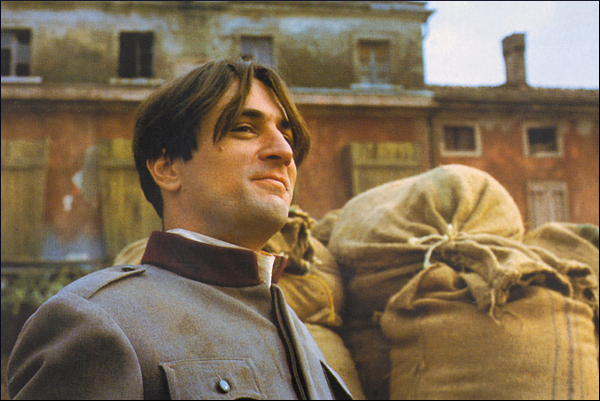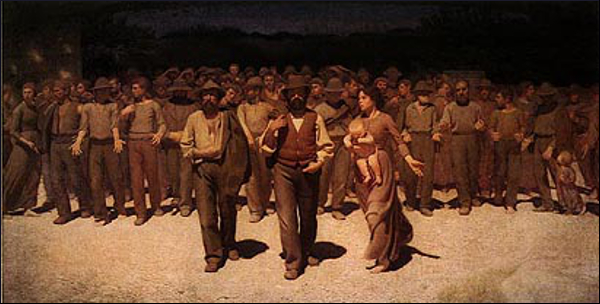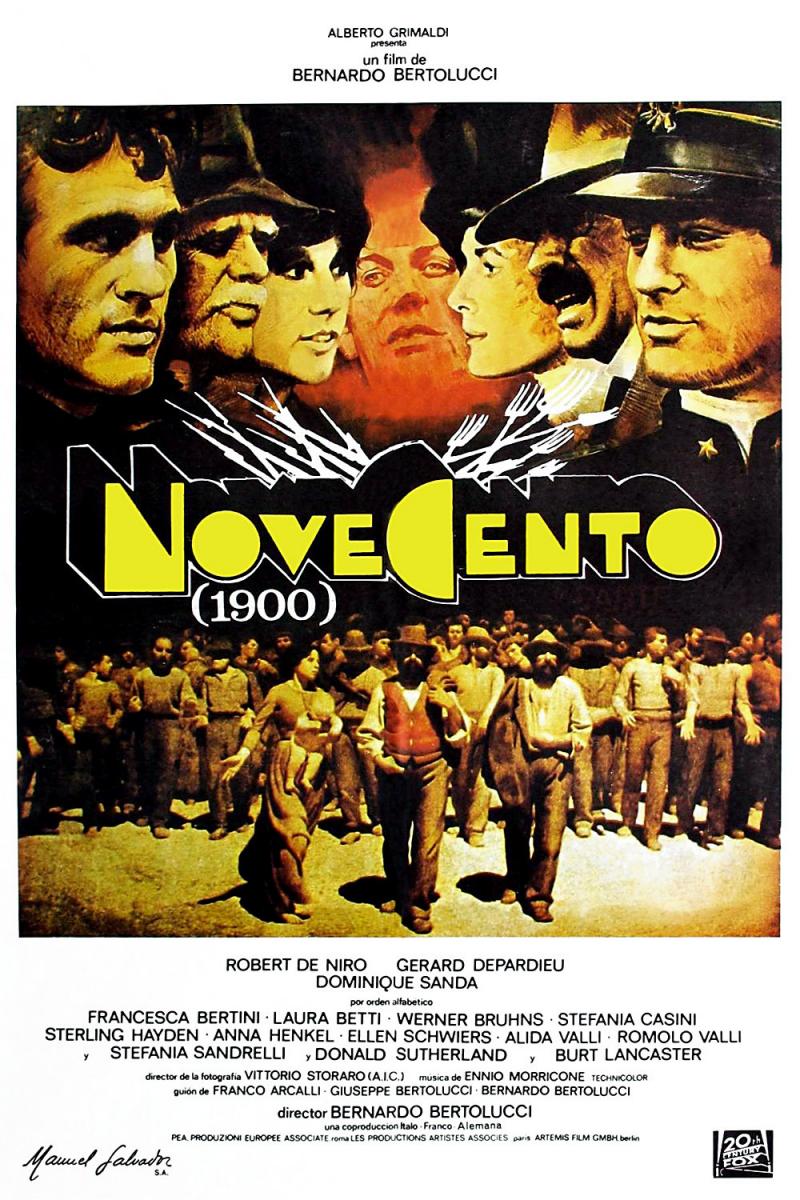Possibly best known for his international productions, such as Last Tango in Paris, The Sheltering Sky, and The Last Emperor, Bernardo Bertolucci has also been capable of retelling key moments in Italian history unlike any other director. This was certainly the case with Prima della rivoluzione, about the crisis of the bourgeoisie during the early 1960s, and especially with Novecento, a fresco in two parts about Italy between the World Wars.
"Novecento, after all, is like a dream, the dream of what might have been, crushed by the reality of what was and currently is."
Set in an Emilian farm, in northern Italy, the film tells the story of the friendship and enmity between Alfredo, played by Robert De Niro, and Olmo, played by Gerard Depardieu. Both were born on the very same day, when classical composer Giuseppe Verdi died. Both were also born in the sample place, with one relevant difference: Alfredo is the heir of property owners and the latter is the son of an unknown peasant. Despite this, the two grow up together, though they see what happens during those terrible decades from different standpoints. Alfredo lives the good life, surrounded by luxury, beautiful women, and comfort, while Olmo is doomed to hardship and toil. Not too surprisingly, one embraces the rise of fascism, not foreseeing the destruction it would lead to, and the other becomes a fervent socialist and, eventually, a communist.

Since the opening frame, a shot of the painting Il quarto stato, by Pelizza da Volpedo, we find ourselves immersed in a rural world that still has to be blessed or damned by progress and industrialization. Back then, during the early 20 th century, Italy was still a country in the making, plagued by class injustice, poverty, ignorance, and famine. Socialism represented a light of hope for the poor and underprivileged, but it was a threat for the rich and the landowners. Which is why Alfredo’s family ends up supporting fascism, which promised to guard the status quo. Bertolucci shows us how these two opposing sides – the future and the past, progress and tradition, justice and injustice, personified by two friends – keep facing and fighting each other across the years. The end of World War II seems to represent the beginning of a new world and a new society. Alfredo, condemned to death by an improvised peasant jury, is allowed to live by Olmo. The new order sees no place for masters anymore. But this is just an illusion, as the new Italy is made by those who ruled the old one. Just before the end, Alfredo has every reason to claim, “Il padrone è vivo.”
From a linguistic point of view, Novecento is characterized by different shades of Emilian-accented Italian. The main difference between masters and peasants is that, unlike the former, the latter speak with a heavier accent and sometimes come up with dialectal expressions. Audiences can hear terms like “varda” (instead of “guarda” or “look”) and “che spusa” (instead of “che puzza” or “what a stink”) along with swear words, like “porca madosca” (bloody hell). At the same time, the peasants sing several traditional socialist or dialectal songs: “Quando Bandiera Rossa se cantava, trenta franchi a l’ora se ciapava” (instead of “Quando si cantava Bandiera Rossa, si prendevano trenta lire l’ora” or “When we sang Red Flag, we got 30 liras”) or “Pellegrin che vien da roma colle scarpe rotte ai pié ” (instead of “Pellegrino che giungi da Roma con la scarpe rotte ai piedi ” or “Pilgrim who arrives from Rome with the broken shoes at his feet”).
For non-Italian viewers, this film could come across as particularly odd, since American actors like De Niro, Burt Lancaster, Donald Sutherland, and Sterling Hayden, as well as French ones, like Gerard Depardieu and Dominique Sanda, are all dubbed into Emilian-accented Italian. Novecento , after all, is like a dream, the dream of what might have been, crushed by the reality of what was and currently is. The red flags waving in the wind are Olmo’s utopian dream, but it is Alfredo’s pragmatism that wins in the end. As always.




